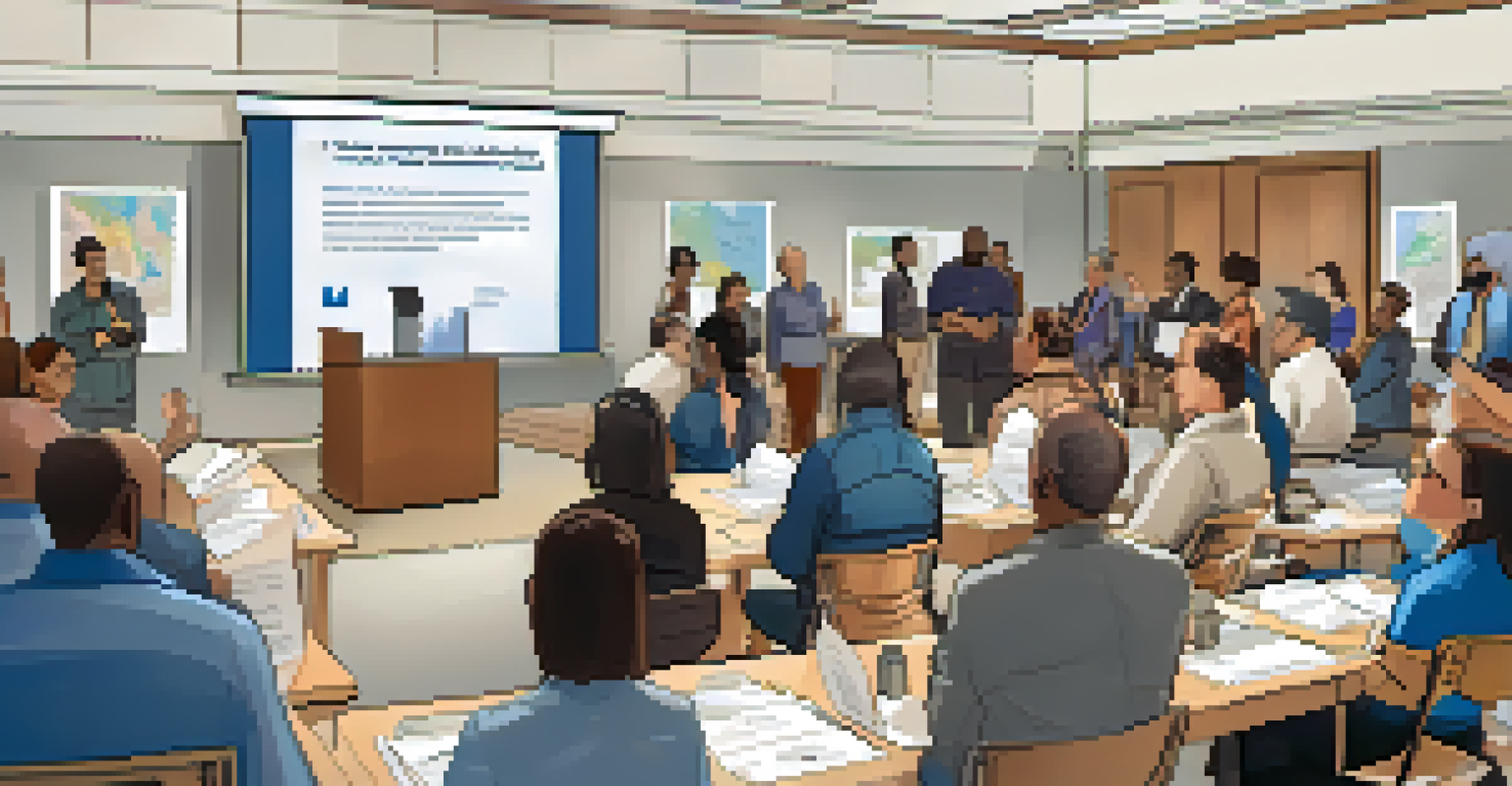Assessing Risks: Marijuana Use and Emergency Situations

Understanding Marijuana and Its Effects on the Body
Marijuana, or cannabis, is a plant that contains compounds called cannabinoids, which can affect the brain and body. The most well-known cannabinoid is THC, which is responsible for the 'high' that users experience. Understanding these effects is crucial, especially in emergency situations, as they can impair motor skills and judgment.
The first rule of health is to take care of your own body. You can't help others if you can't help yourself.
When marijuana is consumed, it can lead to altered perceptions, decreased coordination, and slowed reaction times. These changes can significantly impact a person's ability to respond effectively during emergencies, whether it be a medical crisis or a natural disaster. For instance, someone under the influence may struggle to make quick decisions or perform necessary tasks.
Moreover, the method of consumption—smoking, vaping, or edibles—can also influence the intensity and duration of these effects. While some might feel the impact almost immediately with smoking, edibles can take longer to kick in, leading to potential misunderstandings about one’s capabilities during critical moments.
Potential Risks During Emergency Situations
In emergency scenarios, every second counts, and any impairment can lead to dire consequences. For example, if someone has consumed marijuana and needs to evacuate a building quickly, their response time may be significantly delayed, putting themselves and others at risk. This scenario highlights the importance of understanding one’s state before engaging in potentially dangerous activities.

Additionally, marijuana can exacerbate existing medical conditions, which is particularly concerning during emergencies. For instance, individuals with respiratory issues may find their symptoms worsen after using marijuana, complicating their ability to seek help. This is a critical point to consider, especially for those who have underlying health concerns.
Marijuana Impairs Emergency Responses
Using marijuana can significantly delay reaction times and impair decision-making during emergencies.
Moreover, the legality of marijuana varies by region, which can complicate emergency responses. In places where marijuana use is illegal, individuals may hesitate to seek help or disclose their usage, fearing legal repercussions. This delay can have serious implications for effective emergency care.
Marijuana Use and Impaired Decision-Making
One of the significant risks associated with marijuana use is impaired decision-making. Studies show that THC can affect the cognitive processes that help us evaluate risks and make sound judgments. This impairment can be particularly dangerous in emergencies, where quick thinking is crucial.
In the middle of difficulty lies opportunity.
For example, someone under the influence might underestimate the severity of a situation, leading to delayed action when minutes matter. They may also misjudge their own ability to perform tasks, such as driving to safety or providing first aid. Such miscalculations can have life-threatening consequences, both for the individual and those around them.
Understanding this aspect of marijuana use is essential for individuals and community leaders alike. By raising awareness about the potential cognitive effects of marijuana, we can prepare better strategies for emergency preparedness and response, ensuring that people are aware of their capabilities in critical situations.
Emergency Services and Marijuana Use
Emergency service providers often encounter situations where individuals under the influence of marijuana require assistance. This can complicate their ability to assess the situation effectively, as they may need to determine the extent of impairment before providing care. Understanding how to navigate these challenges is vital for first responders.
Moreover, first responders themselves must be aware of the potential for altered behavior in those they are assisting. People under the influence may react unpredictably, which can pose risks to both the individual and the responders. Training that includes recognizing the signs of marijuana use can help emergency personnel provide safe and effective care.
Risks for Vulnerable Individuals
Marijuana may exacerbate existing health issues, complicating responses for those with underlying conditions during crises.
Furthermore, as legalization continues to spread, emergency services must adapt to these changes. This includes developing protocols that address marijuana-related incidents, ensuring that they can respond appropriately while keeping safety at the forefront.
Mental Health Considerations in Emergencies
Mental health is another critical aspect when assessing the risks of marijuana use during emergencies. For some individuals, marijuana is used as a coping mechanism for anxiety or stress. While it may provide temporary relief, it can also exacerbate feelings of paranoia or panic in high-stress situations.
In emergencies, this heightened state of anxiety can lead to irrational behaviors or decisions. For example, someone experiencing panic may not follow evacuation orders, putting themselves and others in danger. Recognizing the interplay between marijuana use and mental health is crucial for providing appropriate support during crises.
It's also important for mental health professionals to understand how substance use can complicate emergency responses. They can play a vital role in guiding individuals on healthier coping mechanisms, which can be particularly beneficial during stressful times.
Preparing for Emergencies with Marijuana Use in Mind
Preparation is key in any emergency situation, and this includes understanding personal substance use. Individuals who use marijuana should consider how it may affect their ability to respond to emergencies. Creating a plan that accounts for these factors can enhance overall safety and preparedness.
For instance, if someone knows they might be under the influence during a potential emergency, they should have a clear evacuation plan in place or designate a sober person to assist them. This proactive approach can mitigate risks and ensure that individuals are not caught off guard when the unexpected occurs.
Importance of Education and Planning
Raising awareness and preparing for emergencies with an understanding of marijuana use can enhance safety and effective responses.
Additionally, community awareness programs can help educate the public about the importance of planning for emergencies while taking personal substance use into account. By fostering open conversations, we can encourage responsible use and better prepare ourselves for any situation.
The Role of Education and Awareness in Risk Assessment
Education plays a vital role in assessing the risks associated with marijuana use, especially in emergencies. By providing information about the effects of marijuana and its potential impact on decision-making and physical abilities, individuals can make more informed choices. Educational programs can empower people to consider how their choices may affect them in high-pressure situations.
Moreover, awareness campaigns can help reduce the stigma surrounding marijuana use, making it easier for individuals to seek help without fear of judgment. When people feel supported, they are more likely to engage in open discussions about their substance use and its implications. This can lead to better outcomes during emergencies.

Ultimately, fostering a culture of education and awareness can help communities navigate the complexities of marijuana use. By equipping individuals with the knowledge they need, we can collectively enhance safety and preparedness in the face of unexpected challenges.